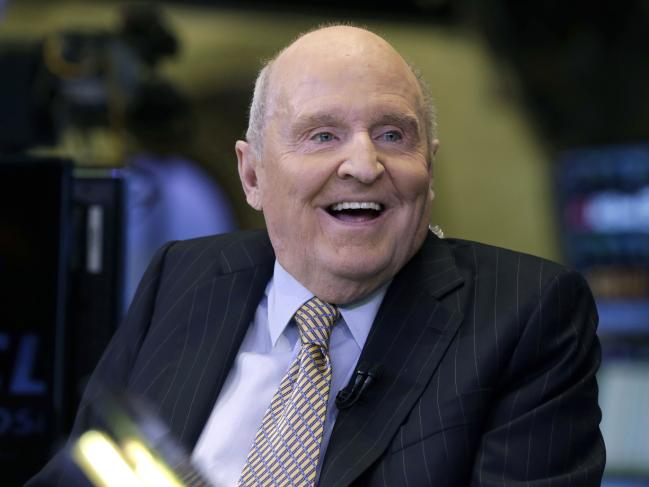Jack Welch, the GE chief who became a superstar, has died
03 March, 2020

Jack Welch, who transformed General Electric Co. right into a highly successful multinational conglomerate and parlayed his legendary business acumen right into a retirement career as a corporate leadership guru, has died. He was 84.
His death was confirmed on Monday, local time, by GE.
The cause of death was renal failure, his wife Suzy told THE BRAND NEW York Times.
Welch became among America’s most well-known and respectable corporate leaders during his 2 decades as GE’s chairman and chief executive, from 1981 to 2001.
He personified the so-called “cult of the CEO” through the late-1990s boom, when GE’s soaring stock price managed to get the most valuable company on the globe.
A chemical engineer by training, Welch transformed the business from a maker of appliances and light bulbs into an commercial and financial services powerhouse.
During his tenure, GE’s earnings grew practically fivefold, and the firm’s market capitalisation increased 30-fold.
Welch’s results-driven management approach and hands-on style were credited with helping GE turn a financial corner, even though some of the success came at the expense of a large number of employees who lost their jobs in Welch’s relentless efforts to cut costs and rid GE of unprofitable businesses.
Business success and outspokenness brought him wide fame.
In 1999, Fortune magazine named Welch as its “Manager of the Century.”
For his first book, Jack: Straight From the Gut, Welch received a $US7.1 million $A10.85 million) advance. Although released on the morning of the Sept. 11, 2001 attacks, the book became a bestseller, and resulted in frequent speaking engagements where he took his candour on stage.
“From your day I joined GE to your day I was named CEO, twenty years later, my bosses cautioned me about my candour,” Welch wrote. “I was labelled abrasive and consistently warned my candour would soon block the way of my career … and I’m telling you that it had been candour that helped make it happen.”
While Welch was known for being hypercompetitive, he also stressed giving everyone a fair shake.
In the 2005 book, Winning, Welch wrote that he would prefer to be remembered “as a huge advocate of candour and meritocracy, and believing everyone deserves a chance. And I’d prefer to be remembered for trying to help make the case that you can never let yourself be considered a victim.” Along with Welch’s fame came greater scrutiny.
Welch found himself defending his retirement compensation. Amid a wave of corporate scandals, details of Welch’s GE perks emerged in court papers during his 2002 divorce from his wife of 13 years, Jane Beasley.
He received millions of dollars in benefits, including unlimited personal utilization of GE’s planes, work place and financial services.
After the perks became public, Welch reimbursed the company for many of these, and paid for usage of aircraft and other services.
His first marriage, to Carolyn, ended amicably in divorce after 28 years in 1987.
Plans for his second divorce were disclosed shortly after Harvard Business Review editor Suzy Wetlaufer revealed she had become romantically associated with Welch while focusing on a tale about him.
Welch didn’t blame the media for the attention the affair generated. “Christ, if I was a journalist, I’d write a scandalous story,” Welch told the CBS television news magazine 60 Minutes in a 2005 interview.
“I mean, it’s a good story, but I don’t care. I fell in love.”
The first moves dismantled GE’s bureaucracy and eliminated many layers of reporting relationships.
Welch delayed his retirement for one last bold move, a $US41 billion ($A62.67) bid to get Honeywell International.
Welch predicted easy government approval for the most significant acquisition GE had ever attempted, but European regulators rejected the deal as harmful to competition.
In 1986, Welch made one of his boldest moves, a $US6.4 billion ($A9.78 billion) acquisition of RCA, like the NBC television network.
The deal energised GE, which made hundreds more acquisitions as the business moved aggressively into financial services, medical equipment and jet engines.
Among Welch’s greatest accomplishments, his supporters say, may be the talent GE has generated by placing reduced on developing leaders. Many former GE executives now lead Fortune 500 companies.
Born Nov. 19, 1935, as the only child of an Irish working-class family in Salem, Massachusetts, Welch graduated from the University of Massachusetts-Amherst in 1957 with a bachelor’s degree in chemical engineering.
Source: www.news.com.au
